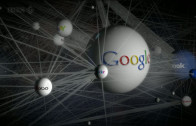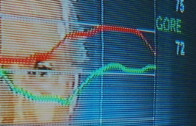The Virtual Revolution
20 years on from the invention of the World Wide Web, The Virtual Revolution explores how the Internet is reshaping almost every aspect of our lives. But what is really going on behind this reshaping? The inventor of the Web, Tim Berners-Lee, believed his invention would remain an open frontier that nobody could own, and that it would take power from the few and give it to the many. So how do these utopian claims stand up to today?
Series
This first episode charts the extraordinary rise of blogs, Wikipedia and YouTube, and traces the ongoing clash between the freedom the technology purports to offer us, and the desire of this culture to control and make profit…
Part two examines how the Web purports to be forging a new brand of politics, both in so-called democracies and authoritarian regimes. With contributions from figureheads such as Al Gore, Martha Lane Fox, Stephen Fry and Bill Gates, presenter Aleks Krotoski explores how interactive websites like Twitter and YouTube have supposedly encouraged ‘direct action’ and politicised young people in unprecedented numbers. Yet at the same time, these very same sites have enabled governments and corporations to surveil, censor, and manipulate people and information in a way never before possible…
Explained by the business leaders of today’s web—such as Jeff Bezos (CEO of Amazon), Eric Schmidt (CEO of Google), Chad Hurley (CEO of YouTube), Bill Gates, Martha Lane Fox and Reed Hastings (CEO of Netflix)—part three traces how the corporate world has exploited the web for it’s own ends to make money and how by doing so, has realised the ultimate creation of targeted, behavioural advertising. It was Google that forged this very business model that has now come to dominate today’s web by offering a plethora of highly attractive, overtly free web services that are in fact funded through a sophisticated advertising system which trades on data about users’ behaviour, interests and the way they navigate the web. On the surface, these developments have brought about a thin veneer of convenience, but as companies and governments start to build up profiles about our online habits, behaviour, interests and preferences, one must ask what this means for our notions of privacy and personal space in the 21st century…
Taking the investigation of how the web is transforming our lives to its logical conclusion, presenter Aleks Krotoski asks renowned neuroscientist Susan Greenfield about the resulting screen culture, social networks such as Facebook and how they are changing human relationships. In a ground-breaking test at University College London, Krotoski investigates how the Web may be distracting, overloading and even changing our brains…




